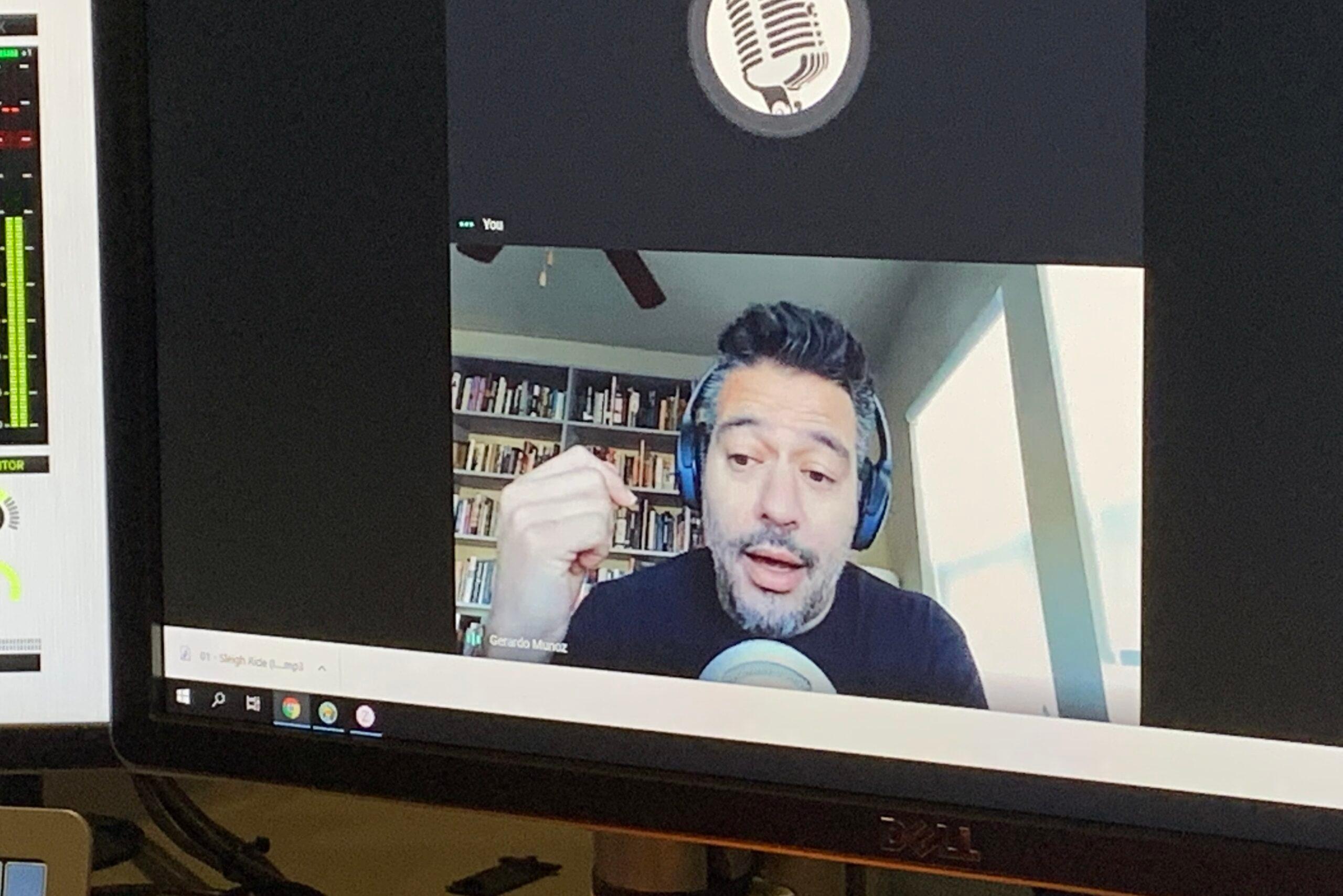
Denver teacher Gerardo Muñoz sits in front of the bookcase in his home office, faces his computer and makes small talk with his World History students as they log on for class.
It’s easy banter. Muñoz tells the kids he’s a Selena fan, and chuckles as they respond on Google Chat. He’s taught for 21 years, mostly at the Denver Center for International Studies, where he now instructs middle and high school students.
Last month, he was named Colorado’s 2021 Teacher of the Year, representing 60,000 Colorado teachers who, like him, are grappling with how to do their jobs in the midst of a pandemic.
The students get down to business, writing essays in preparation for the advanced placement test they’ll take in a few months to earn college credit for the class. When they’re done, Muñoz switches up the mood with a true or false quiz about the upcoming Thanksgiving holiday. He calls it “Fact or Crap.”
Throughout the hour, he refers to the toll the COVID-19 pandemic is taking on everyone. He acknowledges students who’ve told him they can’t get their homework done, noting how complicated peoples’ lives are right now. When a student chats him to make a suggestion about the class, Muñoz quickly buys into the idea.
“We need to do everything we can to make this as bearable as possible, am I right?" he said.
Speaking to Colorado Matters host Ryan Warner a few days later, Muñoz
said there’s no point sugar-coating things for his class.
“I joke with my students, you got all the worst parts of school with none of the good parts. You're doing a whole bunch of work, you're by yourself and you don't even get to see your friends,” he said. “I think it’s critical to be honest about this and how hard it is.”
The students’ isolation has led to a “significant uptick” in depression among middle and high schoolers, Muñoz said.
In regular school, "there are always their peer groups that they can cling to, that they can laugh with, that they can complain with,” he said.
Still, things are better than they were last spring when schools shut with only a few days notice and some kids simply disappeared. At the school district’s direction, teachers are now doubling down to make sure their students are coping emotionally.
“We have been told in no uncertain terms that our academics might slip a little bit, but the main thing is that we first have to make sure that our students are okay,” Muñoz said.
Making things fun once in awhile helps, he said, like the time he was late grabbing a takeout lunch.
"I literally had to start my class from the Tokyo Joe's parking lot ... My phone of course is at 5 percent and I'm saying, 'Hey there's a very good chance that I'm going to vanish from this call. Just keep doing the work, do the best that you can. I'll update you,'" he said. "And so the students thought it was great."
He never worries, though, that he can't trust his students to work.
"I've been teaching for over 21 years and I've never had a student walk into my classroom who did not want to learn," Muñoz said. "They don't always have the tools, they don't always know what that looks like, but they do want to learn, otherwise they wouldn't show."
The Denver Center for International Studies building has been closed since March, when Denver Public Schools shifted to remote learning. With the virus surging, many other districts are now sending students home to learn online.
Gov. Jared Polis, citing both the economic and the emotional impacts on students, last week appointed a task force to advise him on reopening schools as safely and quickly as possible.
Muñoz, whose entire family got sick recently, isn’t quite sure that’s a good idea. His wife taught pre-schoolers in a Denver classroom for most of the fall. She and his daughter have since tested positive for COVID.
Muñoz’s own result was negative, but experts told him the test only captures a moment in time, and with his exposure it’s likely he had the virus as well.
“It doesn't take much to have a spread, to have an outbreak,” he said.








